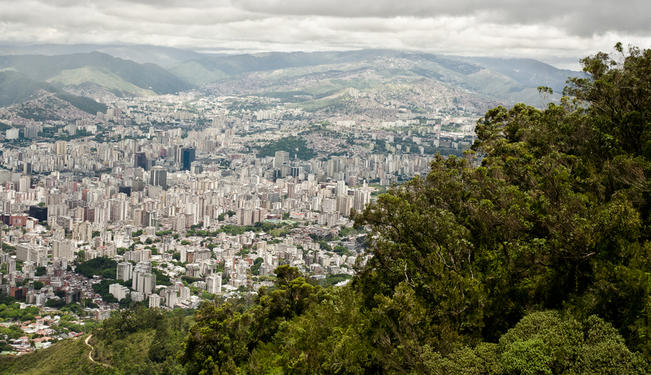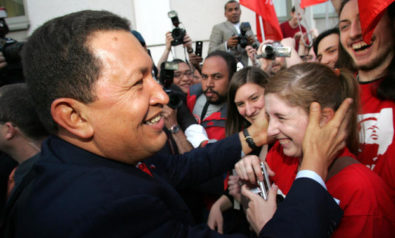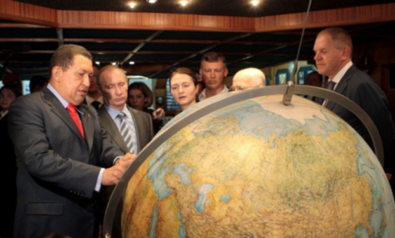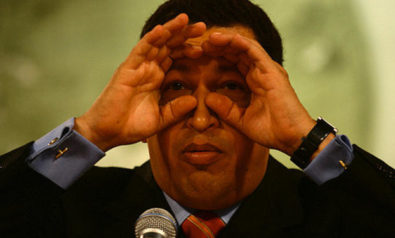Despite his declared commitment to toe his predecessor’s ideological line, the gravity of the economic problems affecting Venezuela may force Maduro to depart from some of Chavez’s policies.
Nicholas Maduro’s narrow electoral triumph over opposition leader Henrique Capriles Radonski in Venezuela’s April 14 elections — to serve out the remainder of the late president Hugo Chavez’s current presidential term — signifies a turning point in Venezuelan politics. Maduro’s victory has also reverberated beyond Venezuela’s borders. Due to its role as a major source of oil, the course of political events in Venezuela also has important implications for the world economy. The death of Chavez has also raised concerns about the prospects of social, political, and economic stability in Venezuela. The victory of Chavez’s heir apparent – Chavez and his supporters went to great lengths to ensure the survival of the Bolivarian Revolution launched by Chavez’s United Socialist Party of Venezuela (known by its Spanish acronym PSUV) – in a politically charged and polarized climate has already resulted in unrest and violence between Maduro’s supporters and his opponents. Venezuela’s increasingly dire economic predicament has further exacerbated tensions across the country.
Despite a contentious bilateral relationship, Venezuela remains the fourth-largest supplier of imported oil to the United States. Given the peculiarities of its oil, namely, the category of relatively low quality heavy crude oil that represents the bulk of its oil capacity, Venezuela relies heavily on US refineries located in the Gulf of Mexico that were designed to refine oil from Venezuela (and Mexico). Roughly 40 percent of Venezuela’s oil exports are delivered to the United States. Consequently, the United States is Venezuela’s top trade partner. This is the case even as US imports of Venezuelan oil have steadily declined in recent years. In 1997, the United States imported about 1.7 million barrels of oil per day (bpd) from Venezuela. In contrast, only about one million bpd of Venezuelan oil makes its way to the United States today. Venezuela also boasts major natural gas reserves, possibly the second-largest natural gas reserves in the Western Hemisphere. At the same time, Venezuela’s oil production capacity continues to deteriorate due to mismanagement, corruption, and antiquated infrastructure.
With its emphasis on South-South cooperation, Latin American integration, and opposition to what it refers to as US imperialism, Venezuela’s foreign policy has largely reflected its Bolivarian Revolutionary principles. Even as it has continued to serve as a major source of crude oil to the United States, Venezuela has also devoted significant diplomatic and economic resources toward checking US influence in the Americas. Initiatives such as its Bolivarian Alliance for the Americas (known by its Spanish acronym ALBA) have served to expand Venezuela’s influence across the region. This support has come in the form of diplomatic and, especially, economic assistance to governments led by leftist political parties and movements that are often enmeshed in their own disputes with the United States, including Cuba, Nicaragua, and Bolivia. Venezuela has also supported a number of militant groups in the region, most notably, the leftist Revolutionary Armed Forces of Colombia (known by its Spanish acronym FARC) in neighboring Colombia. Venezuela has also engaged closely with other left-leaning governments across the region, including Brazil — a rising regional and geopolitical power in its own right that is slowly emerging as a challenger to the United States.
Outlook
Chavez’s appointment of Maduro, a trusted loyalist, as vice president was emblematic of efforts by the incumbent regime to ensure ideological and political continuity in any post-Chavez scenario. At the same time, despite its popularity among a sizable segment of the Venezuelan populace, it is unclear whether the PSUV will be able to retain its dominant role in Venezuelan politics without Chavez in the long-term. Maduro’s narrow victory in the recent elections – Maduro is reported to have defeated his opponent by less than 2 percent of the total vote – reflects a shift in Venezuelan public sentiment.
The removal of Chavez from the political equation will also have an important geopolitical impact that will be felt beyond Venezuela’s borders. Venezuela remains an important supplier of discounted oil for its regional partners and a source of other vital economic support. On the surface, Maduro’s decision to travel to Cuba for his first foreign trip in late April reflects his determination to continue the populist and activist foreign policy forged by his late predecessor. Venezuelan largesse in the form of discounted oil and other benefits has helped sustain Cuba’s Communist Party. Yet, it appears that Maduro is operating under a weaker popular mandate. This raises important questions about his ability to maintain his late predecessor’s approach to foreign affairs, especially given the presence of an increasingly organized and emboldened opposition.
Risks
Operating under a weaker popular mandate, and in a politically charged and polarized climate, raises the specter of widespread disturbances in Venezuela. Capriles announced on April 25 that his movement plans to boycott an official audit of the election results due to concerns relating to voter registration irregularities. He has also called for a new presidential vote. Capriles and his supporters seem determined to step up pressure on the fledgling Maduro presidency.
Countries that depend on Venezuelan largesse to support their economies through the receipt of subsidized oil and preferential trade access to the Venezuelan market, including Cuba, Nicaragua, and Bolivia, among others, stand to lose a great deal should Maduro choose to shift Venezuelan foreign policy, however slightly, from the Bolivarian Revolutionary ideals enshrined during Chavez’s rule. Having to contend with their own economic troubles, the loss of subsidized oil or other benefits provided by Venezuela, for example, can destabilize fragile polities, impoverishing millions in the process. This raises the potential of social, political, and economic instability throughout the region.
Opportunities
Despite his declared commitment to toe his predecessor’s ideological line, the gravity of the economic problems affecting Venezuela may force Maduro to depart from some of Chavez’s policies, especially those governing foreign direct investment (FDI) in Venezuela. Maduro may elect to liberalize certain sectors of the Venezuelan economy and institute other economic reforms in a possible bid to cater to his more moderate opponents, undercutting segments of the opposition and bolstering his own credentials in the process.
The potential loss of a Venezuelan benefactor will also present new opportunities in countries previously dependent on Caracas. Eager to adapt to an evolving geopolitical order, countries previously reliant on Venezuela will seek out new partners and, potentially, sources of FDI.
"Change in Venezuela Yields Political and Economic Uncertainty" has been reproduced with the permission of Helios Global, Inc. Copyright 2013 Helios Global, Inc.
The views expressed in this article are the author's own and do not necessarily reflect Fair Observer’s editorial policy.
Image: Copyright © Shutterstock. All Rights Reserved
For more than 10 years, Fair Observer has been free, fair and independent. No billionaire owns us, no advertisers control us. We are a reader-supported nonprofit. Unlike many other publications, we keep our content free for readers regardless of where they live or whether they can afford to pay. We have no paywalls and no ads.
In the post-truth era of fake news, echo chambers and filter bubbles, we publish a plurality of perspectives from around the world. Anyone can publish with us, but everyone goes through a rigorous editorial process. So, you get fact-checked, well-reasoned content instead of noise.
We publish 2,500+ voices from 90+ countries. We also conduct education and training programs on subjects ranging from digital media and journalism to writing and critical thinking. This doesn’t come cheap. Servers, editors, trainers and web developers cost money.
Please consider supporting us on a regular basis as a recurring donor or a sustaining member.
Support Fair Observer
We rely on your support for our independence, diversity and quality.
Will you support FO’s journalism?
We rely on your support for our independence, diversity and quality.






